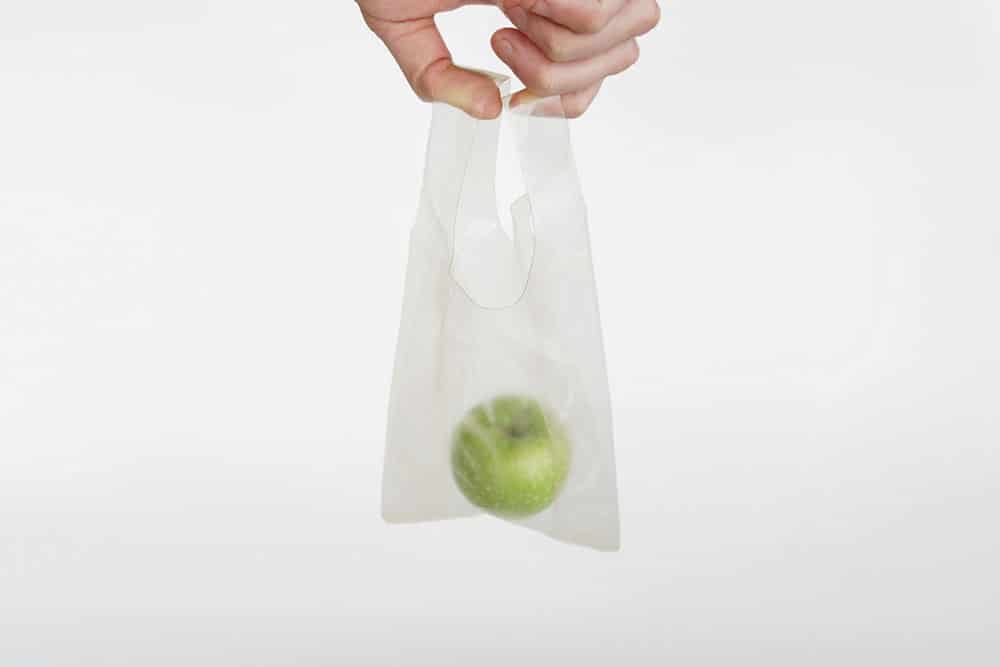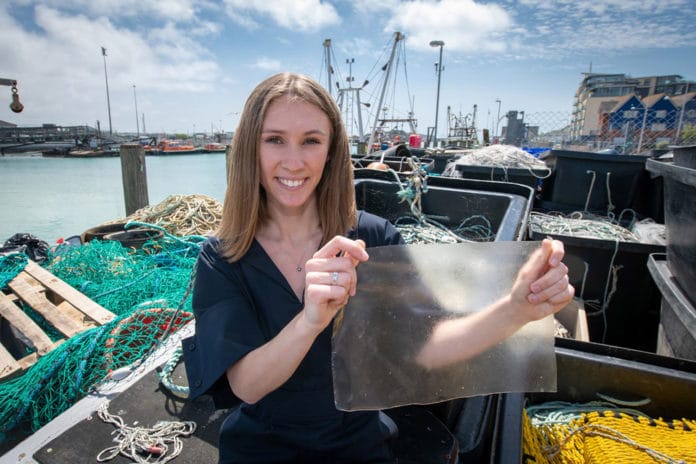As we all know, plastic is a real scourge for the planet. Millions of tons of plastics are thrown into the waters and oceans every year. The situation is such that some are trying to find solutions or alternatives to get rid of plastic.
Lucy Hugues, a student from the University of Sussex in the UK, once undertook to solve two problems in one fell swoop – reduce the amount of disposable plastic products and optimize the processing of waste from the fishing industry. As a result, the student has managed to create a unique alternative to plastic, which is 100% ecological and biodegradable.
The fully biodegradable and compostable material is called MarinaTex. It is a bioplastic that has the distinction of being made with fish waste from the commercial fishing industry (skin and scales) and agar, a natural substance present in red algae. The result is a translucent, strong, and flexible sheet that looks a lot like the plastic we know.
According to the researcher, the transparent, odorless sheet material is ideal for creating disposable transparent packaging – from shopping bags or packaging for food and other single-use products. In appearance, to the touch, strength, and thickness, it resembles plastic, but their similarities end there.

“It makes no sense to me that we are using plastic, an incredibly durable material, for products that have a lifecycle of less than a day,” Lucy said. “With MarinaTex, we are transforming a waste stream into the main component of a new product. By doing so, we have created a consistent, transparent, and ‘plastic-like’ material with a more planet-friendly and product-appropriate lifecycle for packaging.”
This is a really important discovery because in the near future, using materials like “MarinaTex” could help to better fight against plastic pollution, or even overcome it. Really ecological, the finished material, unlike the traditional analog, degrades completely after 4 to 6 weeks only.
The potential of Lucy Hugues’ project did not escape the experts and won the James Dyson International Award. The 24-year-old student received £30,000 to continue her research but also £5,000 for her university department.
